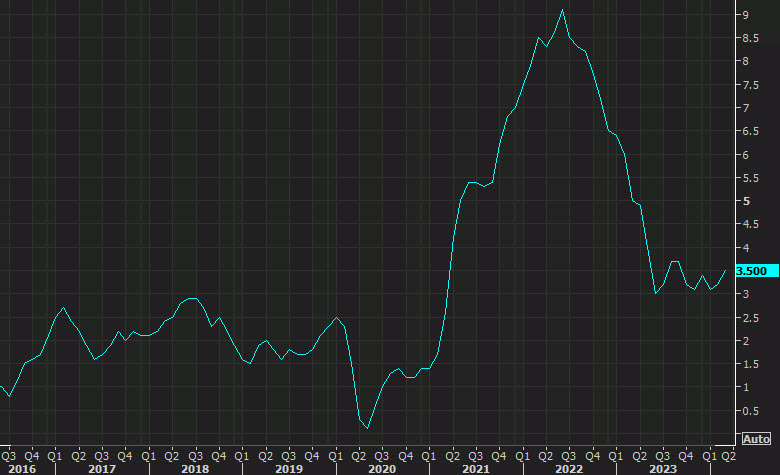What to Expect as FOMC Decision Approaches
Morgan Stanley’s Prediction
As we eagerly await the FOMC decision, Morgan Stanley has provided some insight into what we can expect in terms of inflation data. According to their analysis, there is a high likelihood that inflation data will reverse to downside surprises in April. Several key data series point to a rapid deceleration in rents, while financial services inflation is closely tied to stock market returns. The recent reversal in the S&P 500 in April is expected to push this volatile component of inflation indices down. Additionally, ongoing deflation in China is predicted to have an impact on US goods prices, keeping them broadly in deflation.
The Ongoing Debate
While Morgan Stanley’s predictions paint a somewhat bleak picture of the inflation outlook, there is ongoing debate within the financial community about the true impact of these factors. Some analysts believe that the recent trends in inflation may be temporary and could be reversed in the coming months. Others argue that the global economic landscape is undergoing significant shifts that could have long-lasting effects on inflation rates worldwide.
What This Means for You
Based on Morgan Stanley’s analysis, it is likely that we will see a decrease in inflation rates in the near future. This could have both positive and negative implications for individuals depending on their financial circumstances. For consumers, lower inflation could mean lower prices for goods and services, potentially leading to increased purchasing power. However, for investors, lower inflation could have a negative impact on returns, especially in sectors tied to stock market performance.
The Global Impact
While the focus is often on how inflation trends will affect the US economy, it’s important to consider the global impact as well. A decrease in inflation rates in the US could have ripple effects on economies around the world, particularly in countries that rely heavily on exports to the US. This could lead to increased competition among global markets and potentially impact trade relations between nations.
Conclusion
As we approach the FOMC decision, it’s clear that inflation data will play a crucial role in shaping economic policies and market trends. While Morgan Stanley’s predictions point to a reversal in inflation trends, the true impact of these changes remains to be seen. It will be important for individuals and businesses to stay informed and adapt to the evolving economic landscape in order to navigate the challenges and opportunities that lie ahead.





